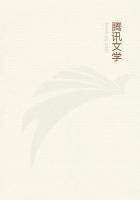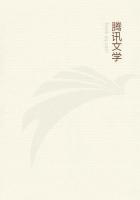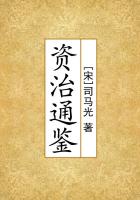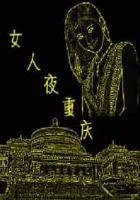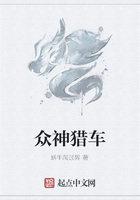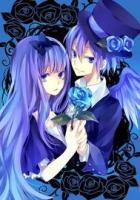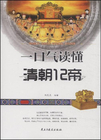All the way down Berkeley Square the bishop was in full-bodied struggle with himself.He was trying to control himself, trying to keep within bounds.He felt that he was stepping too high, that his feet were not properly reaching the ground, that he was walking upon cushions of air.
The feeling of largeness increased, and the feeling of transparency in things about him.He avoided collision with passers-by--excessively.And he felt his attention was being drawn more and more to something that was going on beyond the veil of visible things.He was in Piccadilly now, but at the same time Piccadilly was very small and he was walking in the presence of God.
He had a feeling that God was there though he could not see him.And at the same time he was in this transitory world, with people going to and fro, men with umbrellas tucked dangerously under their arms, men in a hurry, policemen, young women rattling Red Cross collecting boxes, smart people, loafers.They distracted one from God.
He set out to cross the road just opposite Prince's, and jumping needlessly to give way to an omnibus had the narrowest escape from a taxicab.
He paused on the pavement edge to recover himself.The shock of his near escape had, as people say, pulled him together.
What was he to do? Manifestly this opalescent draught was overpowering him.He ought never to have taken it.He ought to have listened to the voice of his misgivings.It was clear that he was not in a fit state to walk about the streets.He was--what had been Dr.Dale's term?--losing his sense of reality.
What was he to do? He was alarmed but not dismayed.His thoughts were as full-bodied as the rest of his being, they came throbbing and bumping into his mind.What was he to do?
Brighton-Pomfrey ought never to have left his practice in the hands of this wild-eyed experimenter.
Strange that after a lifetime of discretion and men's respect one should be standing on the Piccadilly pavement--intoxicated!
It came into his head that he was not so very far from the Athenaeum, and surely there if anywhere a bishop may recover his sense of being--ordinary.
And behind everything, behind the tall buildings and the swarming people there was still the sense of a wide illuminated space, of a light of wonder and a Presence.But he must not give way to that again! He had already given way altogether too much.
He repeated to himself in a whisper, "I am in Piccadilly."If he kept tight hold upon himself he felt he might get to the Athenaeum before--before anything more happened.
He murmured directions to himself."Keep along the pavement.
Turn to the right at the Circus.Now down the hill.Easily down the hill.Don't float! Junior Army and Navy Stores.And the bookseller."And presently he had a doubt of his name and began to repeat it.
"Edward Princhester.Edward Scrope, Lord Bishop of Princhester."And all the while voices within him were asserting, "You are in the kingdom of Heaven.You are in the presence of God.Place and time are a texture of illusion and dreamland.Even now, you are with God."(6)
The porter of the Athenaeum saw him come in, looking well--flushed indeed--but queer in expression; his blue eyes were wide open and unusually vague and blue.
He wandered across towards the dining-room, hesitated, went to look at the news, seemed in doubt whether he would not go into the smoking-room, and then went very slowly upstairs, past the golden angel up to the great drawing-room.
In the drawing-room he found only Sir James Mounce, the man who knew the novels of Sir Walter Scott by heart and had the minutest and most unsparing knowledge of every detail in the life of that supreme giant of English literature.He had even, it was said, acquired a Scotch burr in the enthusiasm of his hero-worship.It was usually sufficient only to turn an ear towards him for him to talk for an hour or so.He was now studying Bradshaw.
The bishop snatched at him desperately.He felt that if he went away there would be no hold left upon the ordinary things of life.
"Sir James," he said, "I was wondering the other day when was the exact date of the earliest public ascription of Waverley to Scott.""Eh!" said Sir James, "but I'd like to talk that over with ye.
Indeed I would.It would be depending very largely on what ye called 'public.' But--"He explained something about an engagement in Birmingham that night, a train to catch.Reluctantly but relentlessly he abandoned the proffered ear.But he promised that the next time they met in the club he would go into the matter "exhausteevely."The door closed upon him.The bishop was alone.He was flooded with the light of the world that is beyond this world.The things about him became very small and indistinct.
He would take himself into a quiet corner in the library of this doll's house, and sit his little body down in one of the miniature armchairs.Then if he was going to faint or if the trancelike feeling was to become altogether a trance--well, a bishop asleep in an armchair in the library of the Athenaeum is nothing to startle any one.
He thought of that convenient hidden room, the North Library, in which is the bust of Croker.There often one can be quite alone....It was empty, and he went across to the window that looks out upon Pall Mall and sat down in the little uncomfortable easy chair by the desk with its back to the Benvenuto Cellini.
And as he sat down, something snapped--like the snapping of a lute string--in his brain.
(7)
With a sigh of deep relief the bishop realized that this world had vanished.
He was in a golden light.
He perceived it as a place, but it was a place without buildings or trees or any very definite features.There was a cloudy suggestion of distant hills, and beneath his feet were little gem-like flowers, and a feeling of divinity and infinite friendliness pervaded his being.His impressions grew more definite.His feet seemed to be bare.He was no longer a bishop nor clad as a bishop.That had gone with the rest of the world.
He was seated on a slab of starry rock.

